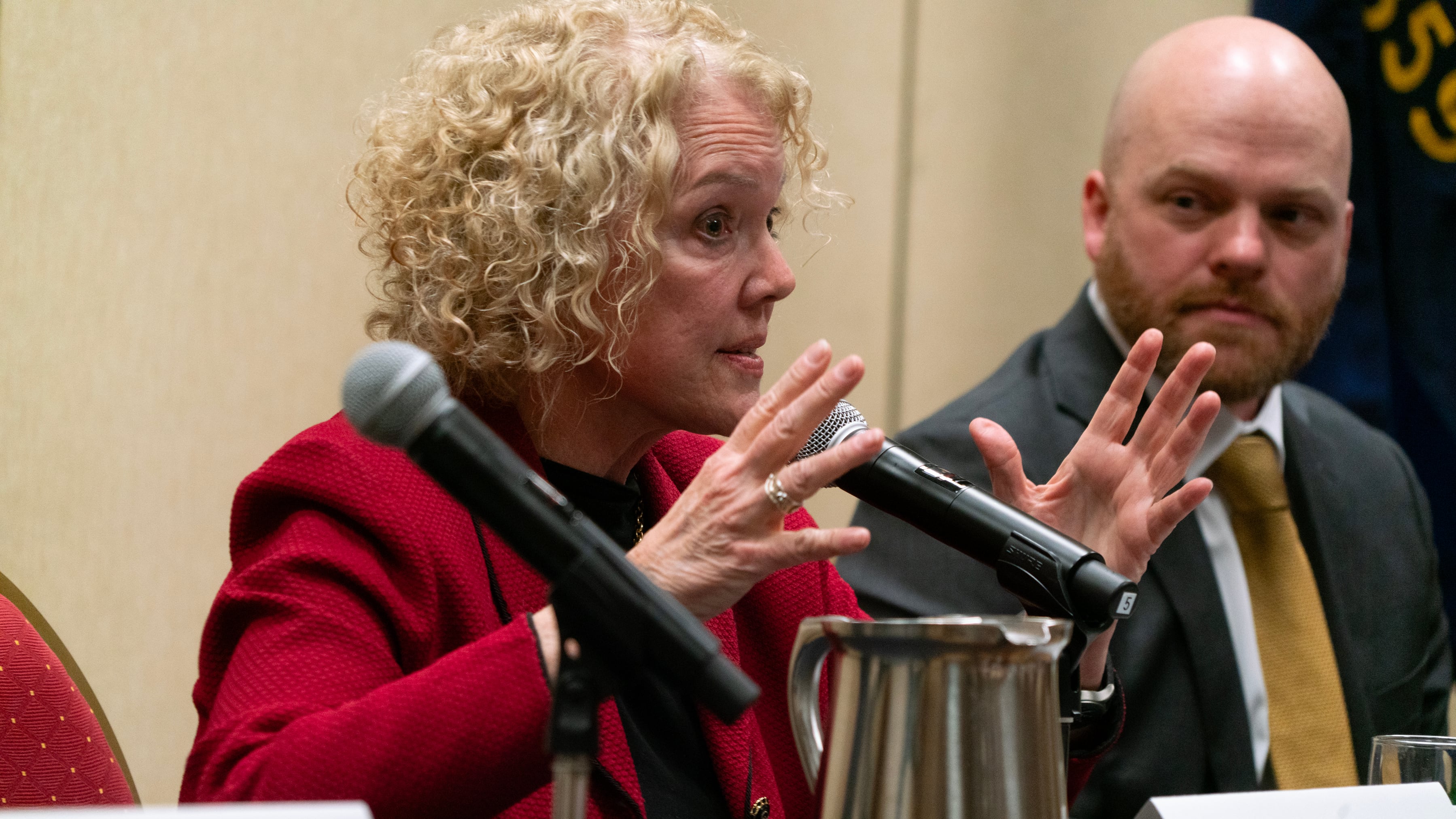The Portland City Council this week spent five hours discussing the frequency of full-council meetings and the structure and content of its policy committees, but could not find consensus on a restructure.
The only thing the 12-member council did approve out of the two work sessions was increasing the frequency of full-council meetings.
The council approved an ordinance in January that created eight policy committees, each led by a chair and co-chair or led by two co-chairs. But it became immediately apparent that the frequency and duration of the meetings were untenable for councilors and for city staff, who worked overtime to attend all the weekly meetings. And councilors said they didn’t have enough hours in the day to go back and rewatch committee meetings that they didn’t sit in on.
So for the past two months, various councilors have sought to change the committee structure and come up with blueprints for what a new path forward could look like. Many of those ideas were discussed, debated and voted on in this week’s two meetings. Few reached resolution.
The one ordinance the council did eventually approve in a first reading by a 7-5 vote would increase the frequency of full-council meetings.
Without reaching consensus on a new committee structure, the council will continue operating under its current structure, which nearly all councilors are unhappy with.
One of the amendments shot down within the ordinance was to shorten the time frame for any policy to be placed on the full council’s agenda by Council President Elana Pirtle-Guiney from 90 days to 45 days.
Councilor Candace Avalos, who voted in support of truncating the timeline in the name of urgency, said she was “overall concerned that we do not share a similar value, it seems, in increasing the people’s voice in our chambers.”
“I just want to put on the record my disappointment,” she added. “We continue to look at systems as being neutral, when they’re not. In fact, we redid this entire form of government because the way of being was very exclusive to the communities that we now have represented on this council. To not make decisions to add more nighttime [meetings], to not increase the urgency in our timelines, is antithetical to that overall outcome.”
Pirtle-Guiney, who’s faced criticism from the council’s six-member progressive caucus (called Peacock) of favoring more centrist councilors, took issue during the Wednesday meeting with councilors who hinted she would choose leadership for the council’s new committees based on her personal politics.
“I have tried to approach this work from the start to try and make sure that many voices get heard,” Pirtle-Guiney said, glancing around the dais. “I hope that as we go through this I do not have folks impugning my values and the way I would approach things by suggesting that I would intentionally politically create a system where we have all chairs from one perspective or another.”
Councilor Dan Ryan proposed at the Thursday meeting dissolving committees for a couple of weeks until the council can reach agreement on what big issues the body wants to tackle during their remaining year and a half of leadership together. Other councilors shot that down, even though most agreed that the council needed to find more common ground—if not politically, at least interpersonally.
“I do think we need time to work together as a body and talk through some things; no one is surprised by that,” Council Vice President Tiffany Koyama Lane said. “I really appreciated our conversations yesterday, I think it was healthy. I’m hesitant to table this because this is an opportunity to talk about governance together.”
Another idea by Councilor Olivia Clark to delay restructuring the committee framework was shot down, though because the council failed to reach consensus by the end of the meeting, Clark’s wish came true.
“I feel there’s a certain amount of toxicity floating around,” Clark said. “There’s just a lot of swirling issues right now. I propose that we postpone the committee reconfiguration for a while.”

